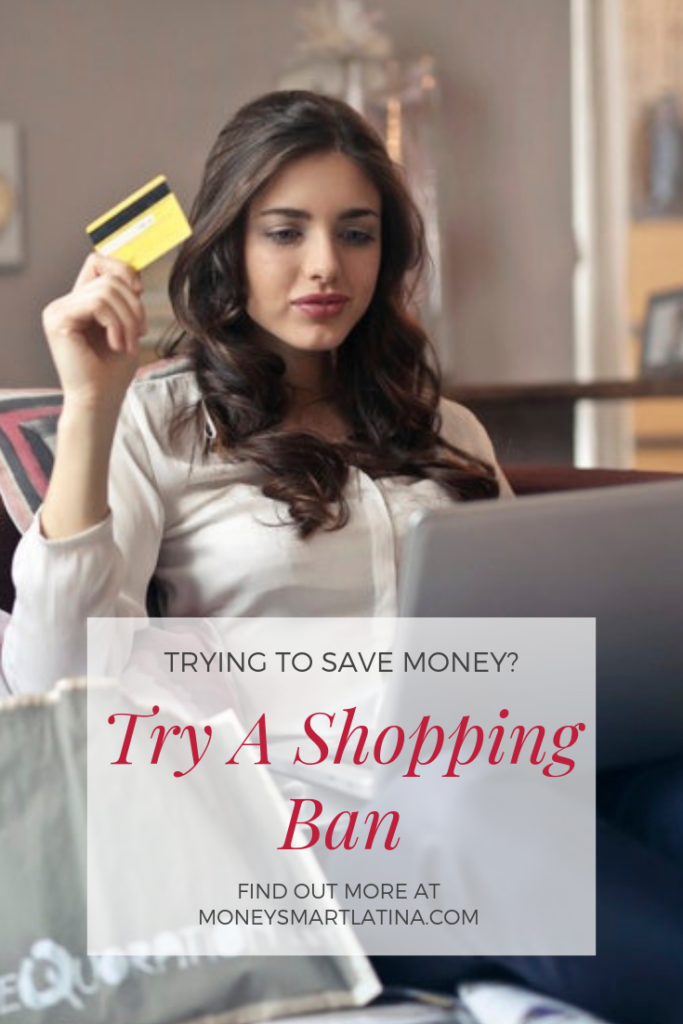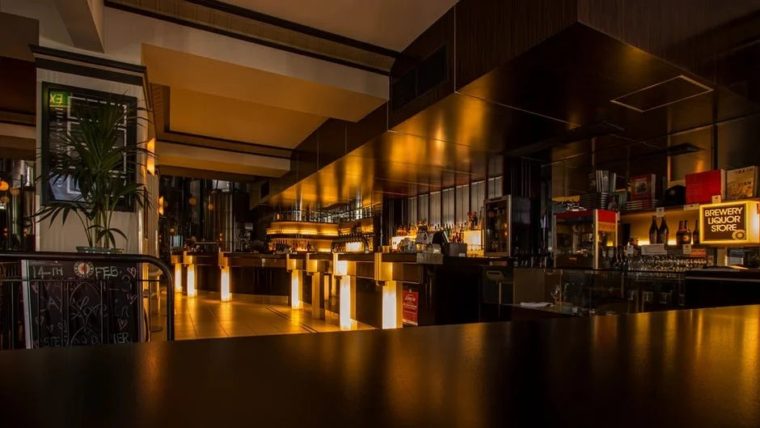Holidays causing you to feel stuffed? Try a different type of detox, a spending fast. And save some money while you’re at it too!
Holidays got you feeling full? If you’re anything like me, my leggings are tight and I can’t remember what day it is. I’ve spent a good majority of the past month away from home and I’m desperate to eat a vegetable again. I’m also desperate to get back into my routine. As a self-proclaimed creature of habit, my days are regulated by my planner and to do lists.
Besides physically, another way I feel sluggish is with my bank account. A family emergency along with Christmas has my funds sitting lower than they have in years. I’m actively trying to double my income but I’m also trying to be a more mindful consumer. With that in mind, I’ve decided to go on a spending fast to help me kick off 2019 right!
What’s a spending fast?
A spending fast or “shopping ban” is as follows: you can’t buy any unnecessary shit for a set amount of time. That’s it. You determine what you can and cannot buy and for how long you can’t buy it for. Some people do it for a week, some people do it for a year. It’s completely up to you and what works for your lifestyle.
I’ve participated in several shopping bans since tipping my toes into the waters of the personal finance community. I can’t say all were a success but I can say that all were a learning experience regarding my mindset and consumerism habits.
How does it work?
As stated above, it’s completely up to you. You make the rules and you get to decide what you can and can’t spend money on and for how long it goes for.
A spending fast, made popular by Anna Newell Jones, is when you don’t spend money on anything not necessary to your survival, in order to free up funds to put towards other areas of your life, such as debt or savings. Jones made a list of wants and needs and spent appropriately. If something was a want, she went without or tried to make it work with as least resources as possible. Some of her needs were rent and utilities, while she also allowed herself to have the opportunity to do photography exhibits if the pricing was right. Her wants included random household decor, makeup, and coffee. By using this method, she was able to pay off all of her debt, in less than two years.
A shopping ban, made popular most recently by Cait Flanders, is when you don’t buy any physical items that are unnecessary. With a shopping ban, you can still eat out or spend on entertainment, so the wants area is a bit more flexible and grey. Flanders did allow herself to purchase items off of an approved shopping list (for example, clothes that needed to be replaced and a new bed), but said no to her biggest vice, coffee houses. As a fellow caffeine addict, I know first hand the struggle is real. She also shared she was spending over $100 a month on coffee alone. I also know first hand that it’s pretty easy to do.
What are the benefits?
Two of the most obvious benefits of a spending fast or shopping ban?
- A: start to find money in your budget and
- B: Stop buying junk.
By allowing yourself to only purchase necessities, you put a constraint on your consumerism habits. Since you aren’t shopping for the hell of it, or because something catches your eye, you’re spending less. When you aren’t shopping, you aren’t purchasing. You stop bringing junk into your home
Since we’re talking about junk, you’ll also start to realize what you really have in your home. The average home has 300,000 items in it. 300,000! That’s a lot of stuff and a good deal of it is probably stuff you don’t use. When you continuously aren’t chasing shiny new items, you can focus on using what you already have on hand. These items can either be used up or tossed. You’ll feel refreshed when your space is decluttered and you’ll be able to actually focus on what you want to do instead.
Resourceful will become your new middle name. You’ll have more time on your hands to enjoy new or already existing hobbies. When you can’t spend money, you look into borrowing items from friends or the library. You make do with what you already have on hand, which cuts down on environmental waste.
The last benefit I want to share, which may seem like a con to some of you, is that you realize things about yourself you may not want to. When I first started dabbling in the personal finance realm, it was because I had no money. It wasn’t until I participated in a shopping ban that I realized I had no money because I had a shopping problem. It’s hard to say but in my twenties, I spent a lot of time hating myself. I was insecure about everything in my life and instead of dealing with it, I shopped. When I couldn’t spend money, I became even more irate. It’s hard to work on yourself, even if it is worth it. A shopping ban made me own up to it.
How can I get started?
The number one way to start something is to just do it! Decide a date and commit to not shopping. Make a list of your wants and needs, then make another list to see if your needs really are wants. Depending on the period of time, you may decide to allow yourself certain exceptions, such as Anna and Cait did. Then start!
Currently, I’m not participating in a shopping ban or a spending fast, but I am working towards being a more mindful consumer as one of my goals in 2019. For me, this means bringing fewer items into my home, using stuff I already have and watching my waste, in both regards to time and food. I can’t wait to see where 2019 takes me but I know participating in shopping bans has helped me get here. I can’t wait to see where a shopping ban gets you!



1 Comment
Tonya@Budget and the Beach
I just read a post from Paula Pant which I really loved, and she had mentioned that people don’t buy things because they need it per say, but because of how that item will make us feel or create this identity for ourselves. I totally paraphrased that. Anyway, here is the article. https://affordanything.com/28-important-lessons-from-2018/